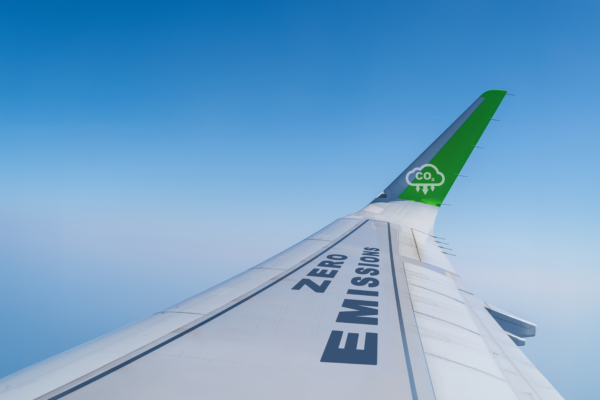July 2024 – The aerospace industry must embrace the imperative shift towards a net zero future through the Jet Zero programme. Launched in July 2022, the Jet Zero strategy sets the UK a binding target of achieving net zero aviation by 2050, necessitating the complete elimination of carbon emissions across the entire aviation value chain1. This strategy is committed to the rapid development of cutting-edge technologies that preserve the advantages of air travel while maximising the opportunities for decarbonisation within the UK. The initiative underscores the urgent need for innovation and sustainable practices in the aviation sector to mitigate its environmental impact.
Journey towards net zero aviation
The journey towards achieving net zero aviation is undoubtedly challenging, especially with the aviation industry only just recovering from the impacts of the pandemic. The increasing demand for air travel places the sector at risk of becoming one of the largest contributors to carbon emissions if decisive action is not taken. Aviation accounts for 2.5% of global CO₂ emissions2 and the aerospace industry emits carbon dioxide emissions are set to triple from one billion metric tons yearly by 2050 if suitable sustainability measures are not implemented3. Aviation’s success must not come at the planet’s expense. The multifaceted and complex strategy to achieve Jet Zero includes six key measures for organisations in the sector: enhancing system efficiencies, developing sustainable aviation fuels (SAF), pioneering the first zero emission flight, leveraging markets and removals, influencing customer behaviours, and addressing non-CO2 emissions.
 Jet Zero progress
Jet Zero progress
Since its conception, the Jet Zero initiative has achieved some key successes including significant progress in SAF and the Jet Zero Council has published a comprehensive Two-Year Plan in April 20234. This plan outlines the necessary actions for the coming years to support the delivery of Jet Zero by 2050. The International Civil Aviation Organisation (ICAO) adopted a net zero 2050 CO2 emissions goal for international aviation in October 2022 and in January 2023 ZeroAvia reached a key milestone for zero emission flight through a successful test flight.
The Jet Zero policy, coupled with evolving consumer demands for as-a-service models, is catalysing the entry of new market players across the aerospace value chain. From e-VTOL original equipment manufacturers (OEMs) like Electric Aviation, offering sustainable passenger travel solutions, to hypersonic passenger aircraft innovators like Venus Aerospace’s Stargazer, the industry is witnessing a surge in innovation. The increasing prominence and acceptance of drones, especially for emergency deliveries in the defence and health sectors, are transforming small providers into scaling enterprises. This momentum is expected to continue, introducing a new era of sustainable and efficient aerospace operations.
How we can support the aerospace sector
Our organisation will play a pivotal role in supporting others to make an environmental shift, particularly focusing on enhancing system efficiencies and advancing zero-emission flight through our sustainability proposition. Our practical strategy, rooted in process and engineering best practices, centres on fulfilling Scope 3 reduction commitments by driving efficiency and carbon reduction throughout key supplier operations.
This approach underscores the critical role of long-term resilience, especially in material sourcing for the supply chain, balancing risks associated with extensive shipping against localised sourcing. By outlining considerations for the supply chain, supplier, and net-zero impact, advantages such as improved process efficiency, minimised material in the supply chain through collaboration with the OEM, reduced overall inventory, and the environmental impact of handling units can be realised.
Your journey to supply chain sustainability
If you’re looking for more support in sustainable aviation, or need help with your supply chain’s sustainability journey, get in touch with us at Unipart Consultancy. Contact us here.
References
- Environmental Audit Committee – Net zero and the UK aviation sector: Government Response to the Committee’s Third Report – April 2024
- Hannah Ritchie – What share of global CO₂ emissions come from aviation? – April 2024
- Statista Research Department – Carbon dioxide emissions from commercial aviation worldwide from 2004 to 2022 – August 2023
- Department for Transport – Jet Zero Strategy One Year On – July 2023